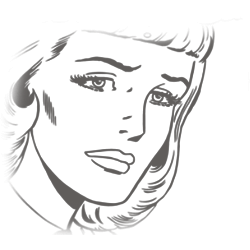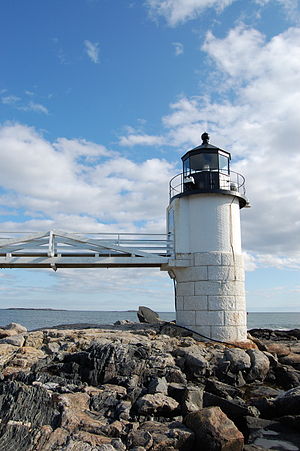ScienceDaily: Top Environment News |
- Sulfur finding may hold key to Gaia theory of Earth as living organism
- Hidden lives of elephant seals: Record-setting dive more than a mile deep
- Ancient sea reptile with gammy jaw suggests dinosaurs got arthritis too
- Mixed bacterial communities evolve to share resources, not compete
- New look at prolonged radiation exposure: At low dose-rate, radiation poses little risk to DNA, study suggests
- Drugs from gila monster lizard saliva reduces cravings for chocolate and ordinary food
- Statistical analysis projects future temperatures in North America
- Tiny plants could cut costs, shrink environmental footprint
- Arctic seabirds adapt to climate change
- First ever record of insect pollination from 100 million years ago
- New species of fish in Sweden
- Locating lice as they hitch-hike with birds for life
- Time, place and how wood is used are factors in carbon emissions from deforestation
| Sulfur finding may hold key to Gaia theory of Earth as living organism Posted: 15 May 2012 05:31 PM PDT Is Earth really a sort of giant living organism as the Gaia hypothesis predicts? A new discovery may provide a key to answering this question. This key of sulfur could allow scientists to unlock heretofore hidden interactions between ocean organisms, atmosphere, and land -- interactions that might provide evidence supporting this famous theory. |
| Hidden lives of elephant seals: Record-setting dive more than a mile deep Posted: 15 May 2012 05:30 PM PDT The same researchers who pioneered the use of satellite tags to monitor the migrations of elephant seals have compiled one of the largest datasets available for any marine mammal species, revealing their movements and diving behavior at sea in unprecedented detail. |
| Ancient sea reptile with gammy jaw suggests dinosaurs got arthritis too Posted: 15 May 2012 05:30 PM PDT Imagine having arthritis in your jaw bones ... if they're over 2 meters long! A new study has found signs of a degenerative condition similar to human arthritis in the jaw of a pliosaur, an ancient sea reptile that lived 150 million years ago. Such a disease has never been described before in fossilized Jurassic reptiles. |
| Mixed bacterial communities evolve to share resources, not compete Posted: 15 May 2012 05:30 PM PDT New research shows how bacteria evolve to increase ecosystem functioning by recycling each other's waste. The study provides some of the first evidence for how interactions between species shape evolution when there is a diverse community. |
| Posted: 15 May 2012 03:12 PM PDT A new study suggests that the guidelines governments use to determine when to evacuate people following a nuclear accident may be too conservative. |
| Drugs from gila monster lizard saliva reduces cravings for chocolate and ordinary food Posted: 15 May 2012 01:54 PM PDT A drug made from the saliva of the Gila monster lizard is effective in reducing the craving for food. Researchers have tested the drug on rats, who after treatment ceased their cravings for both food and chocolate. |
| Statistical analysis projects future temperatures in North America Posted: 15 May 2012 10:16 AM PDT For the first time, researchers have been able to combine different climate models using spatial statistics -- to project future seasonal temperature changes in regions across North America. |
| Tiny plants could cut costs, shrink environmental footprint Posted: 15 May 2012 07:46 AM PDT Tall, waving corn fields that line Midwestern roads may one day be replaced by dwarfed versions that require less water, fertilizer and other inputs, thanks to a fungicide commonly used on golf courses. |
| Arctic seabirds adapt to climate change Posted: 15 May 2012 06:39 AM PDT The planet is warming up, especially at the poles. How do organisms react to this rise in temperatures? Biologists have now shown that little auks, the most common seabirds in the Arctic, are adapting their fishing behavior to warming surface waters in the Greenland Sea. So far, their reproductive and survival rates have not been affected. However, further warming could threaten the species. |
| First ever record of insect pollination from 100 million years ago Posted: 14 May 2012 12:31 PM PDT Amber from the Cretaceous period found in Spain has revealed the first ever fossil record of insect pollination. Scientists discovered and studied with X-rays at the ESRF a specimen of a tiny insect covered with pollen grains. This is the first record of pollen transport and social behavior in this group of animals. |
| Posted: 14 May 2012 10:43 AM PDT Reticulated dragonet have been found in Väderöarna -- "Weather Islands" -- off the west coast of Sweden. It is not often that a new species of fish is discovered in Sweden. |
| Locating lice as they hitch-hike with birds for life Posted: 14 May 2012 10:42 AM PDT Although chewing lice spend their entire lives as parasites on birds, it is difficult to predict patterns of lice distribution, new research reveals. |
| Time, place and how wood is used are factors in carbon emissions from deforestation Posted: 13 May 2012 11:46 AM PDT A new study holds implications for the impact of biofuels production on deforestation and greenhouse gas emissions. The volume of greenhouse gas released when a forest is cleared depends on how the trees will be used and in which part of the world the trees are grown. |
| You are subscribed to email updates from ScienceDaily: Top Environment News To stop receiving these emails, you may unsubscribe now. | Email delivery powered by Google |
| Google Inc., 20 West Kinzie, Chicago IL USA 60610 | |



